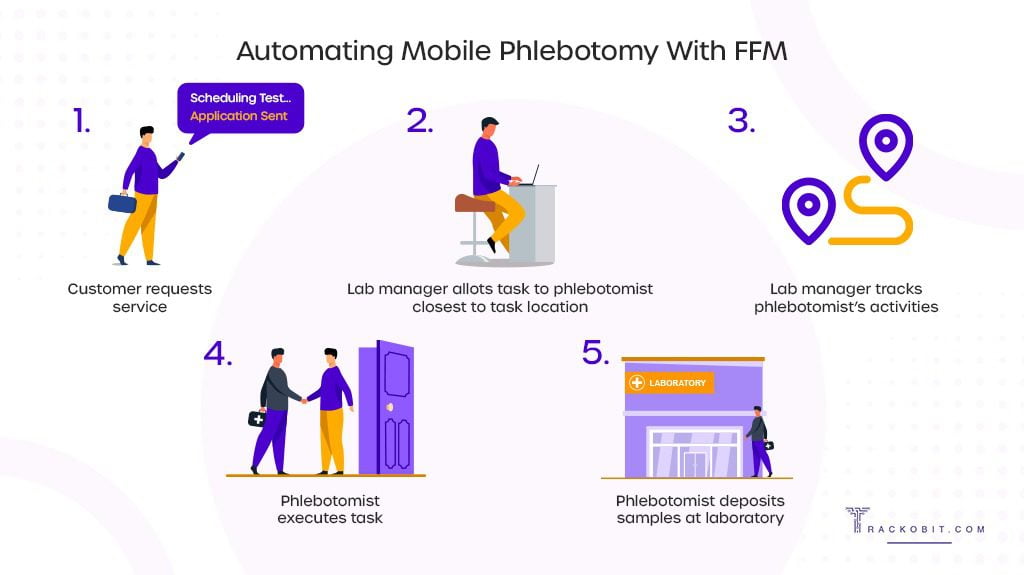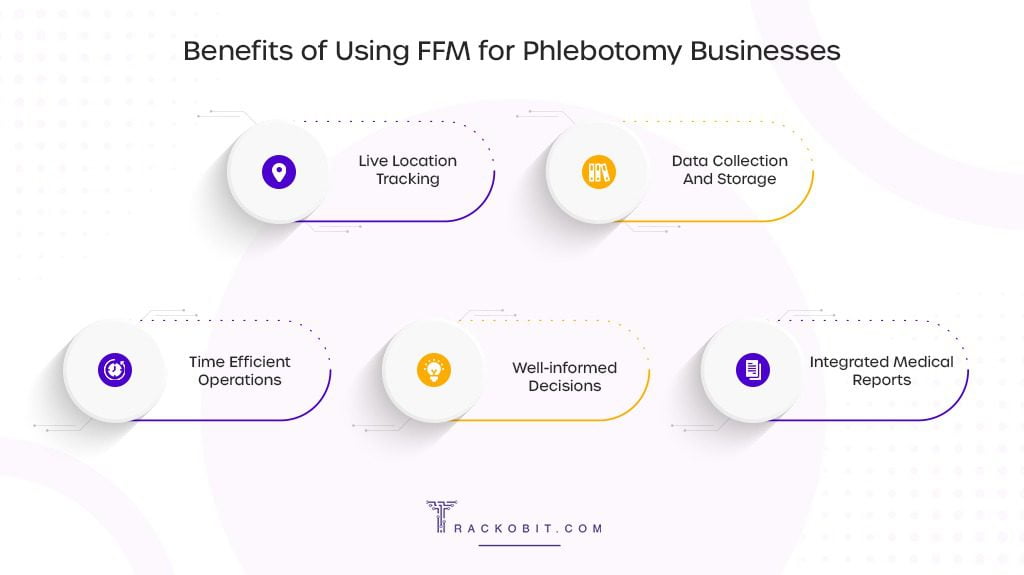-
TrackoBit
Manage commercial vehicles with the new-age Fleet Management Software
TrackoBit -
TrackoField
Streamline your scattered workforce with Field Force Management Software
TrackoField -
Features Resources
-
Blog
Carefully curated articles to update you on industrial trends. -
White Paper
Insightful papers and analysis on essential subject matters. -
Glossary
Explore an alphabetical list of relevant industry terms. -
What’s New
Get TrackoBit & TrackoField monthly updates here. -
Case Study
Explore the cases we solved with our diverse solutions. -
Comparisons
Compare platforms, features, and pricing to find your best fit.
-
About Us
Get to know TrackoBit: our team, ethos, values, and vision. -
Careers
Join the most dynamic cult of coders, creatives and changemakers. -
Tech Support
Learn about our technical support team and services in detail. -
Events
Check out the exhibitions where we left our marks and conquered. -
Contact Us
Connect with us and let us know how we can be of service.
How Can Mobile Phlebotomy Businesses Use Field Force Management Systems?
- Author:Drishti Dua
- Read Time:8 min
- Published:
- Last Update: January 10, 2025
Table of Contents
Toggle
The phlebotomy industry is time sensitive which is why it needs a field force management system. It allows the workforce to become time efficient and increases employee retention.
Table of Contents
Toggle
Have you ever gotten your blood test done? Well, if the answer is yes, then you are already aware of the operations of the phlebotomy industry!
In this new age of technology, especially post-pandemic, every sector has slowly shifted to online functioning. This is how mobile phlebotomy also came into the picture. This industry existed before the pandemic as well but this time period of two periods has given it a boost.
So why are we talking about it in a field force management blog?
Through this blog, we will be discussing why the phlebotomy industry is reshaping the workforce management system operations. It is shifting to more automated operations and data-driven insights! Before we get to that, let us first learn what exactly we mean by the phlebotomy business.
What Does Phlebotomy Industry Entail?
Standing at a market size of 497.3 million, the phlebotomy industry is expected to grow at a CAGR of 4.4% by 2028. So what exactly is the phlebotomy industry?
To put it literally, phlebotomy refers to the act of extracting blood from a vein. This process is usually done for lab testing of these blood samples. But with the growth of technological growth in medicine, tests have also expanded. They are not restricted to simple blood collection anymore. We now have all forms of services that fall under phlebotomy itself.
With the integration of the internet, the industry has now moved to mobile operations. This means that customers simply book their appointments online and then they are assigned an employee, aka a phlebotomist. They collect the customer’s samples and deposit them at the lab. The results are later sent to the patients online.
This ease of access and simple procedures play an imperative role in the growth of the phlebotomy industry.
Challenges Faced by the Phlebotomy Industry
So why do you think this industry requires any form of optimisation, to begin with? When we think of an office scenario, managing employees sounds tough. Now if this workforce is operating from outside of the office, the difficulty level for management multiplies ten folds.
The phlebotomy industry can be of two types. The first type operates right from the laboratory itself, with customers coming in person to provide their blood samples.
It is the second type of phlebotomy business that requires workforce management software. Mobile phlebotomy where employees visit clients in their homes to collect blood samples. While convenient to the customers, it opens up the gates for several issues that both laboratory managers and employees face. The issues that both of them face in this industry are very different. Let us have a look at them individually:

For Employees
Employees have the responsibility of skillfully delivering their tasks. But task execution is a tough job for the employees who have to provide their service directly to the end customers. They are also burdened with maintaining their business’ reputation. Some issues that this workforce faces are:
- Inefficiency: The samples that these employees collect need to be delivered in a short time. This is because they need to be fresh for sampling. Delivery delays might alter the test results and can hamper the company’s credibility.
- Unclear Tasks: Lab managers who have to take care of a large workforce are bound to make mistakes. This becomes even worse when the procedure is manual. In an industry that is in direct contact with its customers, such mistakes can cost businesses their clientele. Bad communication between lab managers and employees also puts employees in jeopardy as they might not deliver quality tasks.
- Irregular Schedule: The phlebotomy industry functions on tasks they receive from customers in real-time. This means it is impossible to form a list of definitive tasks for their employees. Uncertainty in schedules is a deal breaker for many employees. It makes travelling and task status communication very taxing.
For Laboratory Managers
Lab managers are solely responsible for planning and scheduling their field force’s operations. This means that any inefficiency on their end can shake the working of the entire business. Some issues these lab managers can face while being in charge of the phlebotomist workforce are:
- Ensure Skilled Employees: Not everyone can be a phlebotomist. This means that businesses need to set multiple parameters right during the hiring process. Correct qualifications, both educational and experiential, are essential for working in such an industry. But with manual management systems in place, errors are inevitable which can later hit the business’ reputation negatively.
- Lack of Communication: Imagine trying to contact a team of hundred individuals at the same time. Right from task allotment to marking employee attendance, every process requires extensive communication on the lab manager’s end who is in charge of several employees. Makes for a chaotic picture, doesn’t it?
- Enforce Quality Measures: When a client opts for mobile phlebotomy service, they put their trust in the phlebotomist for quality task execution. This means that employees need to follow quality guidelines such as the use of masks, and gloves and avoiding direct contact with samples. But ensuring these guidelines are being followed remotely is a huge hurdle to quality control.
- High Turnover Rate: Employee retention is a huge issue for the phlebotomy industry. Mismanagement can be a reason behind this as employees might get overwhelmed. But for lab managers, this means trying to find more skilled individuals. It can also be very costly for the institution, being the reason behind almost 5.8% of business expenditure. This leads to a waste of both time and resources for the business.
Are Field Force Management Systems a Good Choice for Phlebotomy Businesses?
Now we have understood where the phlebotomy industry struggles while operating. The next step is to look for solutions to these issues. This is easily achievable by investing in a field force management system, though you might be wondering how.
So how does the phlebotomy industry benefit from this system? Let us have a look:
Live Tracking
The primary role field force management software plays is that of a GPS tracking system. Hence, lab managers can access their employee’s real-time location. This is very beneficial in the ad hoc task allotment process. Lab managers can get in contact with phlebotomists who are near the location of any new customers. This helps them improve their customer relations.
Data Collection
As we discussed above, lab managers need to ensure that all the employees they have sent out for collecting samples are well-trained. But how can this be done? Via correct documentation, of course! Before giving access to the software to your phlebotomists, lab managers can check and verify their documents.
This process ensures that no errors happen due to the incompetence of an employee that might jeopardise the reputation of the business.
But that is not all! The software also collects data as you go, but this time it is in the form of reports. These reports highlight the productivity of the workforce working for the phlebotomy business. This means that it becomes easier for lab managers to reward those who do exceptionally well and develop training programs for the ones lacking. Ultimately, it helps boost the company’s reputation.
Time Efficient Operations
For such a time-sensitive industry, having employees that are not prompt with their work is a hit to their overall productivity. This is why the field force management system has solutions targeted to make your workforce’s operations easier and faster.
The first solution is task management. It allows lab managers to assign tasks directly to their employees. That means they do not have to waste time trying to contact their employees individually and let them know of their tasks.
Bulk uploading of tasks also helps lab managers save time which they can then channel toward strategizing and assessing. If there is promptness in task execution, employees can boost the overall productivity of the business as well, making it profitable.
Attendance management solution also allows phlebotomists to save time. They do not have to travel to laboratories just to mark their attendance. Geo-sensitive attendance makes the process easier and more automated. Employees can directly reach their customer’s locations and the system marks them present.
Informed Decisions
Reports point out the mistakes, but it is the lab managers that ultimately take decisions. This is why easily comprehensible data allows managers to make well-informed decisions.
To look at an example, imagine there are two employees A and B. A has several years of experience while B is newly trained. The manager receives an enquiry for blood sample collection of a 70-year-old person. This is a task that requires precision and should be assigned to someone who has handled such cases before. Looking at the reports of both employees, the lab manager can see that employee A is the more appropriate choice.
This eliminates the chance of any customer receiving unsatisfactory service.
Integrated Medical Reports
The system allows businesses to integrate APIs with their operations. One such commonly used API in the phlebotomy industry is for medical reports. This allows businesses to integrate their existing medical database with the system itself.
Suppose a person gets blood tests done every two months due to a medical condition. This means they already exist in the system. So the employee assigned a task related to this customer can access their information for a better insight into their job.
Coming to the End
We hope this blog has helped you understand how the phlebotomy industry functions. As we have mentioned above, this industry poses a lot of challenges for managers and employees alike. But keeping the business’ credibility high by providing good quality service is essential to making profits and growing clientele. This is where good field force management software comes into play.
Looking for software suitable for your business?
Meet TrackoField, the leading field force management app in the market. Its robust solutions like task management, attendance management, and custom forms make operations smooth as butter! So why continue stressing about your workforce? Request a demo and the system’s quality will speak for itself.
Drishti Dua, a Content Contributor at TrackoBit has a rich background in literature and professional expertise in SaaS and technology writing. She has carved her niche in the space of Geospatial techn... Read More
Related Blogs
-

How to Track Field Employees Offline With Field Force Management Software
Mudit Chhikara February 11, 2026Use field force management software to track field employees offline and ensure managers never lose visibility of on-ground operations.
-

How AI-Powered Field Force Management Simplifies Field Operations With Analytical Dashboard
Mudit Chhikara February 10, 2026How AI-powered field force management enhances field operations using AI manager bot and analytical dashboard.
-

Grameen Credit Score and the Quiet Redesign of Rural Lending
Pulkit Jain February 9, 2026Rural lending doesn’t usually go wrong at approval. It drifts when what’s happening on the ground stops being visible.
-

How NBFCs Can Reduce NPAs Using LMS + LOS + FFA Integration
Mudit Chhikara January 30, 2026Here’s how NBFCs can smartly integrate LOS, LMS, and FFA software to reduce NPAs and ensure seamless field operations.

Subscribe for weekly strategies to boost field team productivity.
Your inbox awaits a welcome email. Stay tuned for the latest blog updates & expert insights.
"While you're here, dive into some more reads or grab quick bites from our social platforms!"Stay Updated on tech, telematics and mobility. Don't miss out on the latest in the industry.
We use cookies to enhance and personalize your browsing experience. By continuing to use our website, you agree to our Privacy Policy.





































